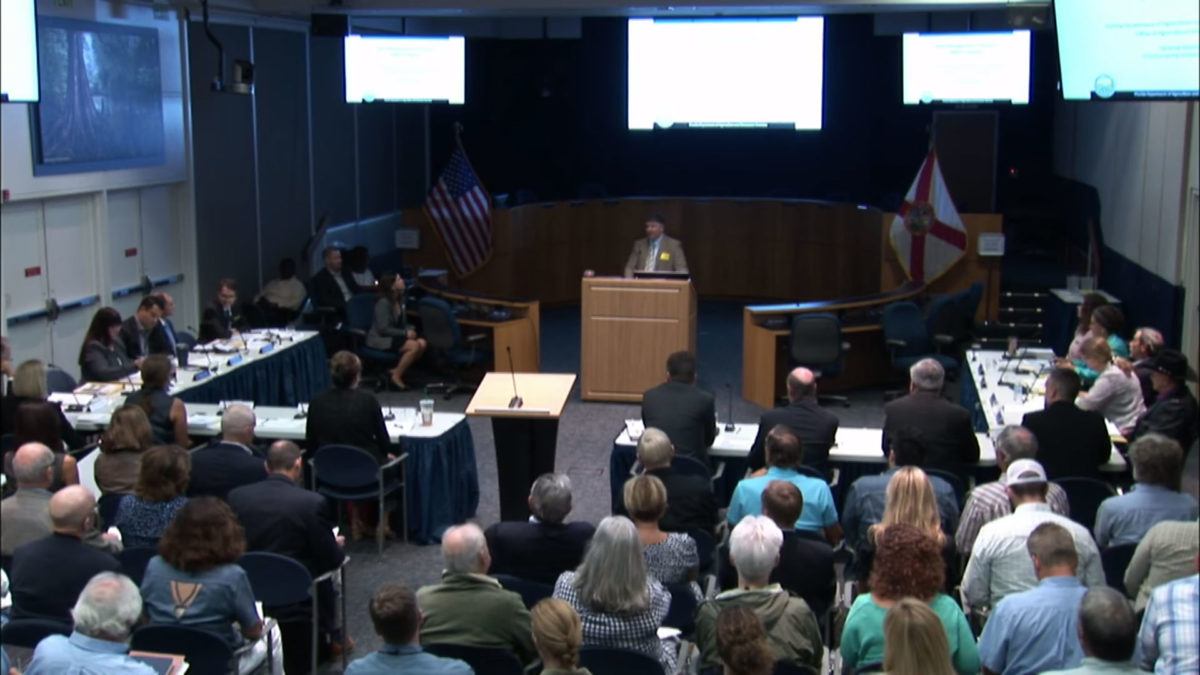
by Gary Cooper
Roots of Algae Debate Show Political Rhetoric Trumping the Facts
Politically driven actions in recent months have undeniably brought major upheaval and confusion in South Florida’s water management circles. More than eight million people who are living in and invested in South Florida are directly impacted by these decisions in one way or another. Misinformation swirls about where the water comes from, where it goes and what it causes. Accusations fly about who is to blame for algae issues that are causing growing concern to all stakeholders. For those who care to seek the truth, some past and present news reports continue to expose important facts that still aren’t being given equal time. Some continue to question the real reasons for the changes to begin with.
Fueled by misinformation and “fake news” swirling among an uninformed public during an election year, the entire previous governing board of the South Florida Water Management District (SFWMD) was forced out in February in a rare action by Florida’s new governor. A new crop of political leaders claimed the entire previous board catered too much to agriculture. They used an extension of a land lease to sugar growers in the Everglades Agriculture Area (EAA) as a scapegoat for the abrupt board overhaul.
The land in question was then and is still now destined to become the next SFWMD reservoir and stormwater treatment area. Facts show the farm lease is consistent with state statutes for land management purposes.
Moments after that EAA land lease was voted on by the previous governing board, AgNet Media interviewed now former SFWMD Vice Chair Brandon Tucker, who also was serving as chairman of the Water Resources Analysis Coalition (WRAC) at that time. Two months after that interview, WRAC was promptly disassembled and shut down as one of the first actions of the new governing board in February. Ironically, this doesn’t match the rhetoric of the new SFWMD governing board and leadership group that now claims to have improved “transparency” and open discussion among all stakeholders.
As if peering into the future without knowing the changes coming just weeks later, Tucker stated the reasons for the lease near the end of the interview, after explaining the importance of WRAC as a way all stakeholders could vet complex issues together.
Coincidentally, now that the new governing board did away with WRAC, at least one board member continues to bring up a “new” need to bring all stakeholders together to share facts and seek consensus. Governing board member Cheryl Meads again shared these suggestions during last week’s water quality workshop:

As evidenced again in last week’s SFWMD meetings, it’s a new day and a new attitude where heavier regulation may rank above good science moving forward, as a basis for answers and decision-making. Without any representation on the governing board for the first time in history, agricultural interests are finding themselves more on the outside of the “conversation” that supporters of these recent changes claim is more “transparent.”
Another Possible Delay for the EAA Reservoir Looms
Just last week, another story in Lake Okeechobee News reported another reason that same project may be delayed due to a smaller, longer land lease involving the Florida Department of Environmental Protection. As the story points out, this time the previous SFWMD governing board can’t be blamed. The article from the local Lake Okeechobee News provides accurate background and more evidence that the previous SFWMD governing board was more studious than it has been given credit for. Its decision to extend the lease was simply to allow farming to continue in that area, as per state law, until the state and federal governments got their collective act together to begin the construction process.

Gary Cooper is the founder and president of AgNet Media, Inc., based in Gainesville, Florida.










